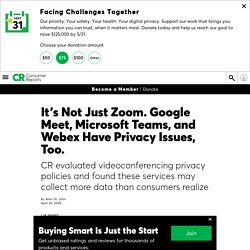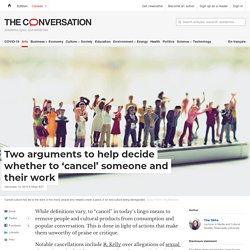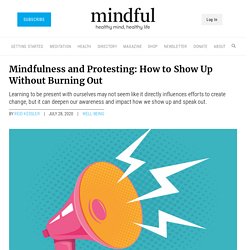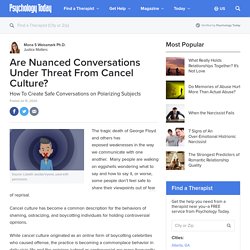

Google Meet, Microsoft Teams, Webex Privacy Issues. At Consumer Reports, we had the same question as Biswanger: Are there differences in how major videoconferencing platforms handle privacy?

It's an important issue at a moment, when consumers are making heavy use of videoconferencing platforms for business meetings, classes, and visits with family. We had already looked at Zoom, which is now fixing a number of privacy and security problems. Next, we decided to evaluate the privacy policies of the biggest, best-known videoconferencing platforms. These are Webex from Cisco; Skype and Teams from Microsoft; and Meet, Duo, and Hangouts from Google.
A single privacy policy governs Google's three videoconferencing services, and Teams and Skype share the same Microsoft privacy policy. "While there are differences among the privacy policies of the different platforms, on balance, the differences aren't enormous," says Bill Fitzgerald, a privacy researcher in Consumer Reports' Digital Lab who analyzed the documents. You can see more details below. Why Interest in Virtual Worlds for Online Collaboration Is Spiking. By now, it’s well known that usage of video-conferencing software like Zoom has exploded as a result of the Covid-19 shutdown.

What is less known is that interest in avatar-based virtual worlds and business-specific adaptations of concepts like Second Life, a well-known virtual world which peaked in mainstream popularity 15 years ago, is spiking as well. “Yes, we’ve been getting a ton of inquiries,” said Philip Rosedale in an email to Singularity Hub. Rosedale is CEO and cofounder of High Fidelity, a software company currently building a new kind of virtual world that’s not yet been released. He’s also the creator and founder of Second Life and said it is seeing a surge in use as well. “This is a strange moment for VR, virtual worlds, and the internet more generally. This point was underscored last week in an opinion article for the Wall Street Journal where Stanford professor Jeremy Bailenson outlined why video conferencing on Zoom can feel so exhausting.
ZOOM etc. Why and How Stuff. Two arguments to help decide whether to 'cancel' someone and their work. While definitions vary, to “cancel” in today’s lingo means to remove people and cultural products from consumption and popular conversation.

This is done in light of actions that make them unworthy of praise or critique. Notable cancellations include R. Kelly over allegations of sexual abuse, Gwen Stefani for apparent cultural appropriation in the 1990s and early 2000s, Roseanne Barr for a racist tweet, and Kanye West for being a Trump supporter. There are a myriad of things that can lead to an individual, and by proxy their work, being cancelled. At present, there exists a lack of critical examination of how we treat art and culture by people who have been cancelled. It also relies on the neglect of what should be a natural fit for progressive politics – an embrace of the “death of the author”. Not the work of one As such, the traditional great man theory, which centres on the driving creative genius of individual – usually white – men, has been challenged. The audience is in control. And Protesting: How to Show Up Without Burning Out. Have you ever wondered about the societal impact of your personal mindfulness practice—especially now, in this moment we are collectively facing?

How does sitting in individual meditation have an impact on your family, community, country, or the human race? Many meditations, such as loving-kindness meditation, directly focus on how you feel about yourself and others. Learning to be present with yourself during a moment of societal turmoil may not seem like it is directly influencing efforts to create societal change, but it absolutely impacts how you show up, speak out, and protest.
The recent protests about police brutality against Black bodies have erupted in an already tumultuous social moment as we reckon with the public health and emotional effects of COVID-19. Taking the time to care for yourself in the midst of advocating for justice is not simply a form of self-indulgence but a vehicle to improve efforts in supporting social justice. 1. 2. 3. Are Nuanced Conversations Under Threat From Cancel Culture? Source: Lizbeth Jacobs/Vyond, used with permission.

The tragic death of George Floyd and others has exposed weaknesses in the way we communicate with one another. Many people are walking on eggshells wondering what to say and how to say it, or worse, some people don’t feel safe to share their viewpoints out of fear of reprisal. Cancel culture has become a common description for the behaviors of shaming, ostracizing, and boycotting individuals for holding controversial opinions. article continues after advertisement While cancel culture originated as an online form of boycotting celebrities who caused offense, the practice is becoming a commonplace behavior in daily civic life and the opinions judged as controversial are more frequently the types commonly held by large portions of the population.
When the threat of being canceled becomes a daily preoccupation, honest conversations do not happen and real understanding cannot be achieved. Copyright © 2020 Mona Sue Weissmark.